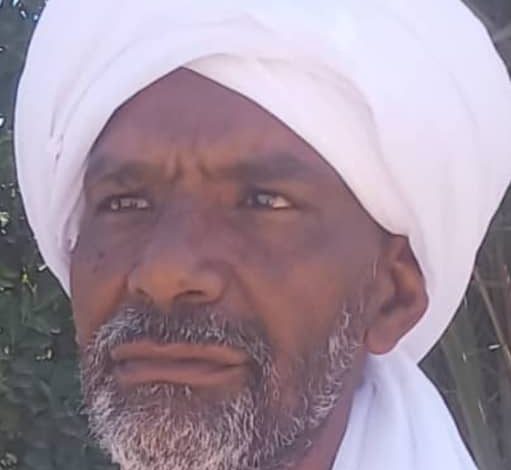Sudanese Case ……Reading of Outcomes of Crisis (When Will This War End)??

By: Ibrahim Al-Tayeb Al-Jilani
(1)
All Sudanese hope that this war will end quickly, that life will return to normal, and that people will resume their lives and return to their homes…
Since the Rapid Support Forces (RSF) redeployed in Khartoum and occupied Merowe Airport, most Sudanese expected clashes to break out between the army and the rebel forces, especially after the failure of all mediation between them to calm the situation, for these clashes to end quickly (each according to his discretion and calculation of the situation at the time). The course of the war changed after the failure of the rebellion to achieve its goals to arrest or kill the army leadership and control the country. After that, the duration of the war extended to continue for more than a year for several reasons, the most prominent of which are:
First: the large size of the rebel forces at the time.
Second: Military support and external logistical supply to the rebellion.
Third: The wide spread of the rebel forces and their presence to guard all state facilities and vital areas in Khartoum.
Fourth: The army’s strategy, plans and tactics in confronting the rebellion, in which it relied on absorbing the initial shocks of the rebellion’s attempt to control and exhaust the rebellion and preserve the army’s capabilities, which is something the army leadership succeeded in doing with great efficiency despite the skeptics’ skepticism.
Fifth: Foreign interventions, negotiations, and ceasefire truces had a negative impact in prolonging the war, and the rebel benefited from them to reorganize its ranks. These and other reasons had a clear impact in prolonging the war.
(2)
The question that remains: when will this war end??
How does this war end??
Will it end in military victory??
Or will it end in negotiations between the army and the rebels??
When looking at the military option, the army may be able to succeed in a not-so-short time in reclaiming the cities occupied by the rebellion in the center and west of the country and defeating the rebellion in narrow pockets according to current data. This is something that the army can achieve despite its high cost. This option means that the army expels the rebellion from the major cities of Khartoum and Medani, El Geneina, Nyala, and Zalingei. This victory tips the military balance in favor of the Sudanese army, and life returns to the cities, citizens to their homes, and institutions to carry out their work. Then the fighting moves to less vital areas, and the rebellion then becomes at its weakest.
(3)
When considering the option of negotiation between the army and the rebel force, we must know that for the negotiation to be successful, several conditions must be met between its parties, the most prominent of which is (the desire to reach a solution and stop the fighting). This desire is not emotional, but rather has practical steps that express that desire, including, for example, the willingness of both parties to sit down to negotiate. Announcing pre-negotiation steps to show good intentions between the conflicting parties, stopping the fighting before sitting down to negotiate…etc. This is what has not been met so far in all the negotiating sessions between the army and the rebels (we emphasize here that for the negotiation to be successful, the desire must be shared by both parties and not by either of them. The reader of all previous negotiating rounds realizes that the rebellion has no real desire to stop the fighting or reach a solution, and we must differentiate here between reaching a solution, stopping the fighting, and signing an agreement between the parties. Signing an agreement, despite its importance, becomes useless if it is not adhered to, as what is more important than the agreement is to adhere to it and implement it, which has not been implemented and which the rebellion has adhered to so far.)
Also one of the reasons for the success of the negotiation is the ability to make major concessions from the negotiating parties. It is clear that the negotiating parties do not have the ability to make such major concessions, regardless of the external pressures, and for this there is much evidence…
With a careful analytical reading of the course of negotiations for the conflicts around us in (Libya, Syria, Yemen, Iraq, Somalia), despite the holding of dozens and dozens of negotiation sessions between the parties to the conflict, we find that they have not yet yielded any fruit in bringing peace to the countries mentioned, but rather the negotiation sessions have affected them over the years as well. The fighting has prolonged, and it is a result that serves the interests of other countries that have gains. The state of conflict here in Sudan and in the mentioned countries remains (continuation, not victory), and the situation in the country remains in a state of (no war, no peace), and the state of exhaustion and weakening of the state continues. This is a situation in which the Sudanese lose a lot and others gain from it. a lot ..
Therefore, whoever hopes that the negotiation sessions will lead to peace without the objective reasons mentioned above, pins his hopes on data that are not realistic.
(4)
There are factors that have a significant impact, whether at the military or negotiating level, in shortening or prolonging the duration of the war, the most prominent of which is:
The size and form of external interventions, which can be summarized, firstly, as follows: intervention in the military aspect represented by external support and supply of equipment and weapons, especially support for the rebellion with weapons, and secondly, the sanctions of a military nature imposed on the army and the rebel militia and their impact on the battlefield.
As for the negotiating aspect, it is represented by the ability of the international community to exert real political, economic and diplomatic pressure on the negotiating parties to succeed in reaching an agreement that is adhered to and implemented by the army and the rebel militias. The pressure exerted, especially on the militia, remains weak and ineffective in achieving a real breakthrough in the negotiating rounds.
(5)
The internal influences and the interactions they cause on the course of the crisis, and here we must look at them from two important aspects, the first of which is the economic aspect, and this relates to the state’s ability to manage the national economy in light of war, weak resources, and scarcity of capabilities to provide food and services at a minimum, prevent the collapse of the economy, support the war effort, and spend on the war. And its security and humanitarian concerns, the conduct of civil state affairs, and the rationalization of government expenditures that this entails. This is a challenge that has a profound impact on the steadfastness and unity of the internal front and its rallying around the armed forces to confront the rebellion.
The second part of the influences of the internal front is the political aspect and the political shadows it casts on the Sudanese scene. The different and conflicting political visions in diagnosing and describing the crisis form a state of political alignment and bias towards both sides of the fighting, which requires leading political movements through which the internal front is unified and the main issues are addressed, which led to the outbreak of fighting and the emergence of a political vision that addresses the foundations of the dispute and establishes a transitional period with consensus and political consensus that ends the division and stops the fighting, which has a positive impact on the ongoing conflict. In this context, we must not overlook the popular component, which played and continues to play an important role in the course of the crisis by standing behind the armed forces with support, backing and encirclement, which moved the conflict to a circle in which the capabilities of the armed forces expanded by benefiting from the energies of the popular component and its support. It also does not hide the pivotal role played by the popular movement in supporting peace efforts and reaching a political settlement.
From the above we know that arriving at a formula to end the war through the barrel of a gun or the squeak of pens has components, factors and influences (internal and external) that must be present to end the existing conflict, and until these factors and influences are available to achieve peace and a settlement of the Sudanese crisis, the question of when the war will end remains suspended between the battlefields and the negotiation sessions until God will decree a matter that was already destined.



